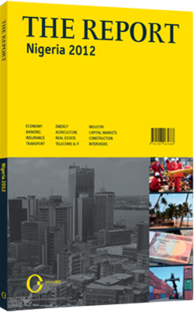On the horizon: Reforms linked to the National Tax Policy look set to continue
In line with the National Tax Policy launched by the president in the second half of 2012, Nigeria continues to pursue various tax reforms which are geared towards achieving a business-friendly environment and a simplified tax administration. The National Tax Policy also serves as a reference point for future tax legislation and continuous improvement in tax administration. Below are some of the recent developments in the tax environment and the significant potential changes under consideration.
AMENDMENT TO THE COMPANIES INCOME TAX ACT: undefined The Fifth Schedule to the Companies Income Tax Act has been amended to cover more bodies to which tax deductible donations can be made. Generally, public institutions or funds established by a society or association for public-interest-related activities will qualify for tax-deductible donations. In addition, there is a proposed amendment to the act to, among other things, allow for tax incentives for economic growth and creation of employment opportunities.
The proposals, if passed into law, will grant a 10-year tax holiday to any new company established in an area with no electricity, water or tarred road. Where such facilities provided by the government are located at least 10 km away, the firm will be entitled to an investment allowance ranging from 20% to 100% of expenditure incurred in providing such facilities.
Also, the proposal seeks to increase the tax holiday of a new company going into mining of solid minerals, or gas utilisation from the current three and five years to five and seven years, respectively.
TAX ADMINISTRATION REGULATIONS: New regulations dated December 12, 2011 have been issued to prescribe rules for self-assessment tax filing. The regulations cover all major taxes including corporate income tax, petroleum profits tax, personal income tax, value-added tax and withholding tax. Based on the regulations, taxpayers are required to comply strictly with tax filing and payment deadlines or face sanctions. The maximum number of tax instalments for corporate income tax has been reduced from six to three, while the deadline for the final payment has been reduced from five to two months after the filing date.
PETROLEUM INDUSTRY BILL: The bill, which seeks to combine 16 different petroleum laws, has been redrafted and resubmitted to the National Assembly for consideration. This became necessary due to the emergence of different versions of the bill and to address concerns of key stakeholders. The bill aims to ensure transparency, make industry participation more equitable and maximise state revenue. Once enacted, a two-tier tax system comprising corporate income tax and hydrocarbons tax will apply to exploration and production firms.
TRANSFER PRICING & THIN CAPITALISATION: The Federal Inland Revenue Service (FIRS) is set to issue transfer pricing regulations in the second half of 2012. When published, the regulations will require related parties to justify the prices charged for transactions between them such as management, technical and royalty fees. The rules will be applicable to both local and multinational-related party transactions for the financial period commencing after the publication, and are in conformity with the OECD guidelines.
Additionally, the FIRS is planning to introduce thin capitalisation rules to limit the ratio of related party debt to equity permissible for tax purposes. However, the rules are not likely to be published until 2013 with an appropriate cut-off date or transition period for existing related party debts.
In conclusion, taxation and fiscal policy issues are becoming more important in Nigeria and therefore receiving more attention from governments at all levels. This trend is expected to continue and further intensify in the coming years. Taxpayers must therefore manage their tax affairs to ensure full compliance at minimum cost, and plan to optimise their tax position to preserve value and ensure long-term sustainability.
OBG would like to thank PwC for their contribution to THE REPORT Nigeria 2012
You have reached the limit of premium articles you can view for free.
Choose from the options below to purchase print or digital editions of our Reports. You can also purchase a website subscription giving you unlimited access to all of our Reports online for 12 months.
If you have already purchased this Report or have a website subscription, please login to continue.

